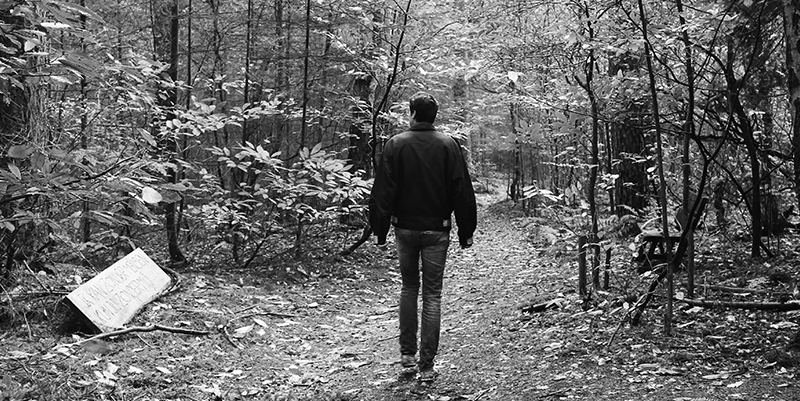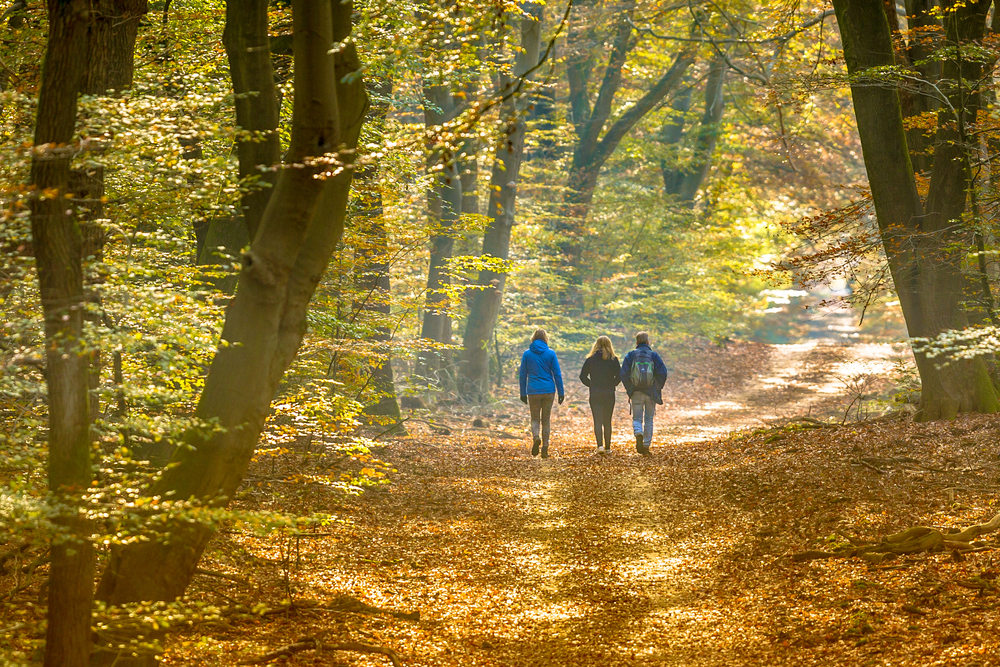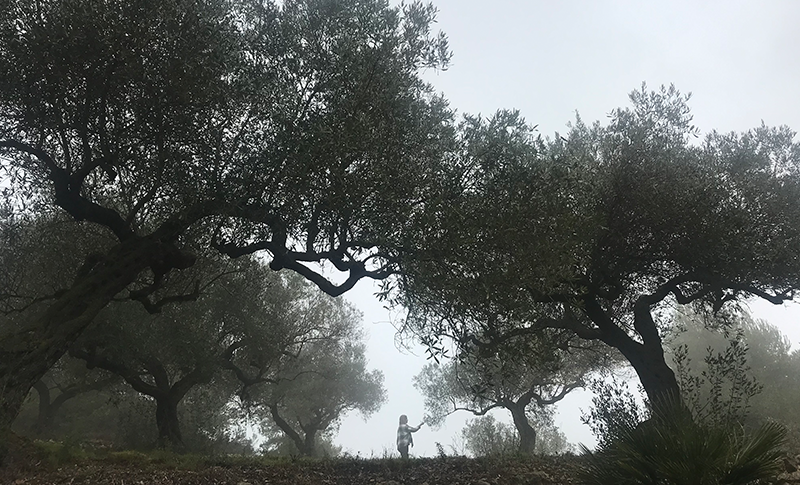‘It’s a flaw in our thinking that we treat nature and humans as two separate things.’ Welcome to The Forest that Belongs to Itself. Two WUR students are volunteers there and are looking for a new etiquette for relations between humans and forests.
Take a walk in the woods around Maarn in the Utrechtse Heuvelrug nature area, and you might walk straight past it: The Forest that Belongs to Itself. The trees and plants here are no different to those in the surrounding woods, and the birds sound just the same. But people have no say over what happens on these five hectares. The Forest that Belongs to Itself foundation (number 9 in the Dutch daily newspaper Trouw’s Sustainable 100 this year) has sought to legally establish nature’s rights here for the first time in the Netherlands. WUR student Tobias Werner (25) and former WUR student Joke ter Stege (29) work here as volunteers. Werner is writing his Master’s thesis on the forest, and Joke is involved at a ‘more philosophical’ level.
Act of redemption
The forest, which lies within the Utrechtse Heuvelrug national park, has been under the foundation’s management for 10 years. Not that there is going to be any real managing: the foundation’s aim is to grant rights to the forest via the legal route. To find a precedent for this they had to delve into the history books. ‘We end up in the period just after the Dutch Revolt [1568-1648],’ says Tobias Werner, a Master’s student of Environmental Sciences who is writing his thesis on the forest. ‘Just after the start of the war, William the Silent signed the Act of Redemption for the forest of The Hague, because the citizens of The Hague were worried that the forest was in danger of being felled.
People are welcome here, but they have no say over these five hectares
The Act irrevocably forbids any felling in the forest for economic gain.’ The act is still in force. The Forest that Belongs to Itself foundation has used this precedent to draw up a legal document for the forest. Here too, felling for financial gain is forbidden for eternity. ‘In practice, it means that we have two obligations: the owner commits to managing the forest in the forest’s best interests, and that obligation remains in force if the forest changes hands. I see it as a kind of marriage contract between the land and the owner,’ says Werner.
From ego to eco
Joke ter Stege, an ex-student of International Land and Water Management, got involved in The Forest that Belongs to Itself after an inspiring talk with someone in the train on the way back from a climate protest at Schiphol. ‘I don’t have any legal background; I got involved more from the philosophical angle. My question is always: how do we put the ecosystem at the heart of things, rather than humans? Humans are animals and are part of a greater whole. It is a flaw in our thinking that we treat nature and humans as two separate things,’ says Ter Stege. ‘I think it’s great that The Forest that Belongs to Itself kind of questions people about how they look at the world around them. Then you are not just preoccupied with “me” and the individual: you shift from ego to eco.’ According to Werner and Ter Stege, that people don’t see themselves as part of nature is also the reason why so little is done about the climate problem, even though scientists come up with lots of solutions. Ter Stege: ‘The problem is not that we don’t have any technical solutions, but how we think about the world around us.’
Human-mushroom
Although the forest belongs to itself, visitors are welcome. ‘Our foundation works to establish a reciprocal relationship between people and the environment,’ says Werner. ‘Human-tree, human-plant, human-mushroom… That kind of relationship can’t develop if you keep people out of a patch of land like this. It’s important that people can come here but at the same time, that they don’t have any say over these five hectares. Everything in the Netherlands is so intensively regulated. But not this bit of forest. I like that idea. When I’m here, I feel the peacefulness of it.’
‘The Forest that Belongs to Itself has been in existence for about three years now, but we are still working out what kind of rights “nature’s rights” actually are,’ says Ter Stege. ‘There is no precedent in the Netherlands, so we’ve got to figure that out for ourselves,’ says Werner. ‘The search for new etiquette for relations with the environment which allow for more than just “being” nature is crucial if we are to establish “Rights of Nature” in the Netherlands on a larger scale.’ Ter Stege adds: ‘Conceptually, you can go in various directions, but at this stage we are just trying things out. We already know so much: now we want to go into action. That’s what The Forest that Belongs to Itself means to me.’

 Tobias Werner in the forest that’s not his either. The sign says: ‘I can manage without people; can you manage without me?’ Photo Ilja Bouwknegt
Tobias Werner in the forest that’s not his either. The sign says: ‘I can manage without people; can you manage without me?’ Photo Ilja Bouwknegt 

